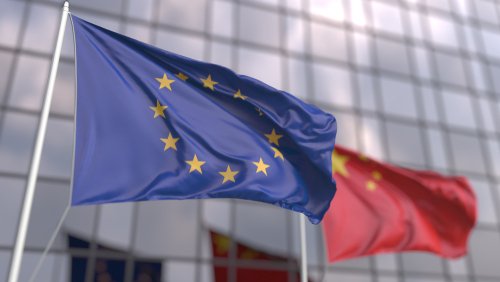Belgium (Brussels Morning Newspaper)German MEP Reinhard Bütikofer, chair of the European Parliament´s China delegation, says Xi Jinping has become “China´s party emperor for life.”
From 16 October, the Chinese Communist Party (CCP) has held its 20th National Congress at which Xi Jinping will begin his third term as the General Secretary of the CCP.
It is expected that he will expand on two central claims that he made at the 19th National Congress in October 2017, namely that the CCP leads “government, the military, society and schools, north, south, east and west”, and that China “is moving closer to the world’s center stage”.
Since reaching top office, Mr Xi has overseen a wide-reaching corruption crackdown extending to the highest echelons of the party. But critics have portrayed it as a political purge.
About 2,300 delegates are meeting to elect party leaders and debate key policies.
Over the course of the congress, delegates are also expected to elect various leaders including the Politburo Standing Committee – China’s equivalent of a presidential cabinet – who will present themselves to waiting media after the congress.
Bütikofer says that since the beginning of 2020, China and its relationship with the world have seen “unprecedented change.”
Bütikofer, said, “While the 20th Party Conference of the CCP is meeting in Beijing to acclaim Xi Jinping´s long prepared status as China´s party emperor for life, the EU´s Foreign Affairs Council has at its gathering in Luxembourg China policy on its agenda for a first time in a long while. Other pressing concerns and challenges will again prevent the China discussion from playing a first rank role in the meeting. The PRC´s threats to our values, our interests, and our democratic way of life are continuously becoming more important, but somehow the EU seems unable to focus on these developments in an adequate way.
He said, “The failure in prioritizing China policy is not a coincidence. It reflects the fact that within the European China debate there are very different strategic assessments. On one side of the conversation there´s a growing understanding that the EU is indeed deeper into rivalry territory with the PRC than ever before, which should make it incumbent upon us to reflect on practical consequences.
“At the very least the EU should start acknowledging the fact that several of our trusted partners and allies are taking important steps to push back against China´s hegemonic ambitions. On the other hand, however, there are still those that mistake their understandable wish of more relevant cooperation with China for the reality. China is decoupling from us where ever they see a chance of strengthening their own hand by doing that.
He went on “European citizens have made up their minds about China whereas some of our leaders seem unable to do that together. Don´t hold your breath for the results of the FAC´s China discussion. They will be lukewarm. But the responsibility for that will not fall on the shoulders of the Commission or the EEAS until Berlin, Paris and other capitals apply to China what they have learned from their own failures vis-à-vis Russia, indecisiveness will be hard to overcome.”
Meanwhile, a possible ban by the EU on goods from China which may have been produced or sourced from forced labour has been welcomed by a leading human rights group.The ban is thought to being considered by the European Commission as a response to growing concern about alleged rights abuses in China.
Critics of the Beijing regime say those companies in Europe and elsewhere that do business with China should be penalised along with a ban on goods sourced from forced labour.
The issue has been pushed up the agenda of late by the disturbing plight of the Uyghur people in China who, it is alleged, face persecution by the Chinese authorities.
This and a possible ban on goods was the subject of a debate at Brussels press club.
Keynote speaker was Ben Rogers, founder of Hong Kong Watch, a non-governmental organisation based in the UK hat was established to monitor the conditions of human rights, freedoms and rule of law in Hong Kong.
Speaking via a link from London, he said, “This is an incredibly important topic and I warmly welcome the EU proposal on a possible goods ban. This is a very good start.”
“The U.S has already gone down this path to ban imports made by forced labour. I would urge the EU to do the same.”
“The plight of the Uyghurs is being recognised as genocide and crimes against humanity. This is being given serious consideration. But this genocide of the Uyghurs is not the only aspect of the current appalling human rights crisis in China.”
Further comment came from another contributor, Chris White, a former national newspaper reporter in the UK, who said, “There is a general failure of politics around the world. Politicians intend to do the right thing but often it is not concluded. But I must admit that I don’t see the EU succeeding in this proposal on a goods ban because it will come up against fierce opposition.”
Gary Cartwright, who organised the debate, also criticised media coverage of the issue, saying, “This is one of the major human rights issues but the British media seem more interested in celebrity news.”




